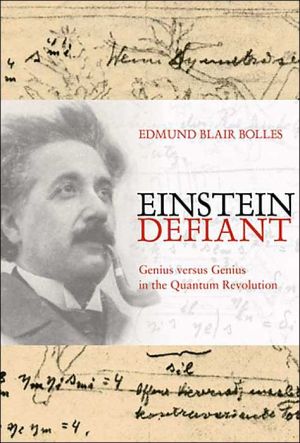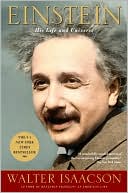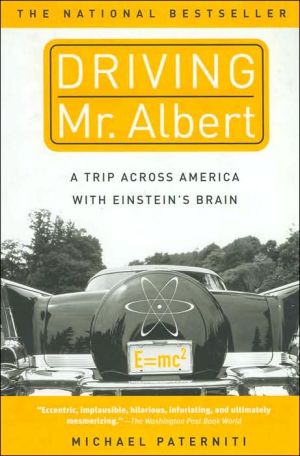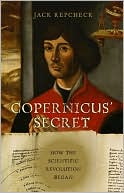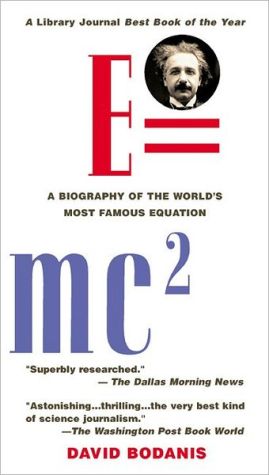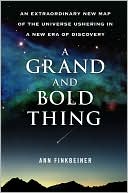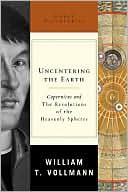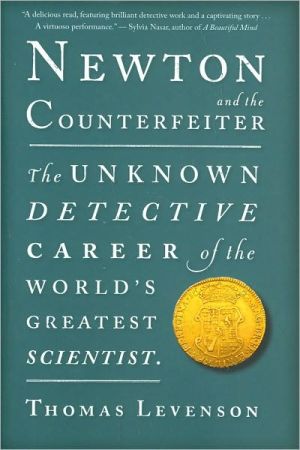Einstein Defiant: Genius versus Genius in the Quantum Revolution
"I find the idea quite intolerable that an electron exposed to radiation should choose of its own free will, not only its moment to jump off, but also its direction. In that case, I would rather be a cobbler, or even an employee in a gaming house, than a physicist." -Albert Einstein \ A scandal hovers over the history of 20th century physics. Albert Einstein -- the century's greatest physicist -- was never able to come to terms with quantum mechanics, the century's greatest theoretical...
Search in google:
This is not a biography, and not a popular science account of relativity, but partakes of both: Bolles' interest is in explaining why one of the greatest modern physicists (Einstein) was so vehemently opposed to one of the greatest modern theories of physics (quantum mechanics). Following this design, he gives a detailed (but nonmathematical) description of relativity, in order to contrast it with quantum physics, and a fair amount of biographical information on Einstein, in order to give psychological insight to his recalcitrance. References and an index are provided, but the publisher provides scanty information on the author himself. Annotation © 2004 Book News, Inc., Portland, OR Publishers Weekly Albert Einstein sought throughout his career to understand the ways of "the Old One," his nickname for the deity. Not one to chase after theory just because the math worked, Einstein adopted an equation like E = mc2 only if he could demonstrate how it played out in the physical world. Nor did he believe that the Old One was capricious, letting a photon of light masquerade as a particle one moment, as a wave the next. Einstein always sought to explain an unambiguous, consistent reality. As author Bolles (The Ice Finders, etc.) shows, this placed him at loggerheads with Niels Bohr and his Copenhagen school of quantum physics. Bohr was the pragmatist to Einstein's purist, looking for theories that worked, whether or not they made sense. Bolles conjures up the lost world of Europe between the wars, an era when readers would snatch up newspapers with Einstein's latest paper printed on the front page. In addition to his flair for bringing to life the cultural background of Einstein and Bohr's scientific battle (with occasional slips: Schoenberg did not compose the opera Wozzeck), Bolles exhibits a marvelous facility in explaining the intricacies of relativity and the world inside the atom. Readers who can never keep the three B's-Bohr, Born and de Broglie-straight will know what their roles were in 20th-century physics by the end of the book, which is highly recommended for science buffs as well as readers of biography and cultural history. (On sale Apr. 6) Copyright 2004 Reed Business Information.
A radical fact resisted1The opposite of an intriguer32Not German at all123I never fully understood it264Independence and inner freedom355A mercy of fate516Picturesque phrases577Scientific dada688Such a devil of a fellow769Intuition and inspiration8610Bold, not to say reckless9411A completely new lesson10212Slaves to time and space11013Where all weaker imaginations wither11614A triumph of Einstein over Bohr127A radical theory created15Something deeply hidden13716Completely solved14617Exciting and exacting times16218Intellectual drunkenness18419The observant executrix19520It might look crazy20421Taking nothing solemnly21122How much more gratifying218A radical understanding defied23Sorcerer's multiplication22924Adding two nonsenses23625Admiration and suspicion24126An unrelenting fanatic24827The secret of the old one25128Indeterminacy25629A very pleasant talk26430The dream of his life27631The saddest chapter28532A reality independent of man29333A certain unreasonableness299Afterword305Bibliography309Sources317Index337
\ Publishers WeeklyAlbert Einstein sought throughout his career to understand the ways of "the Old One," his nickname for the deity. Not one to chase after theory just because the math worked, Einstein adopted an equation like E = mc2 only if he could demonstrate how it played out in the physical world. Nor did he believe that the Old One was capricious, letting a photon of light masquerade as a particle one moment, as a wave the next. Einstein always sought to explain an unambiguous, consistent reality. As author Bolles (The Ice Finders, etc.) shows, this placed him at loggerheads with Niels Bohr and his Copenhagen school of quantum physics. Bohr was the pragmatist to Einstein's purist, looking for theories that worked, whether or not they made sense. Bolles conjures up the lost world of Europe between the wars, an era when readers would snatch up newspapers with Einstein's latest paper printed on the front page. In addition to his flair for bringing to life the cultural background of Einstein and Bohr's scientific battle (with occasional slips: Schoenberg did not compose the opera Wozzeck), Bolles exhibits a marvelous facility in explaining the intricacies of relativity and the world inside the atom. Readers who can never keep the three B's-Bohr, Born and de Broglie-straight will know what their roles were in 20th-century physics by the end of the book, which is highly recommended for science buffs as well as readers of biography and cultural history. (On sale Apr. 6) Copyright 2004 Reed Business Information.\ \ \ \ \ Library JournalBolles (The Ice Finders; Galileo's Commandment) retells the story of modern physicists' struggle to reach a full understanding of quantum physics. His account centers on the debate between two scientific giants, Albert Einstein and Niels Bohr, who famously took opposing sides on the quantum issue. Bolles's hero is Einstein, who argued until his death that there must be an ultimate physical reality beneath the mathematically successful and experimentally valid quantum mechanics of Bohr and his colleagues. Bolles's book is colorful, readable, and well explains Einstein's reservations about quantum mechanics. Unfortunately, much of the color is made up of personal details about Einstein and Bohr that are not germane to the intriguing intellectual issues discussed. There is also a plethora of unnecessarily disparaging comments about Bohr and his style of physics. Recommended with reservations chiefly to libraries with extensive science collections.-Jack W. Weigel, Ann Arbor, MI Copyright 2004 Reed Business Information.\ \
